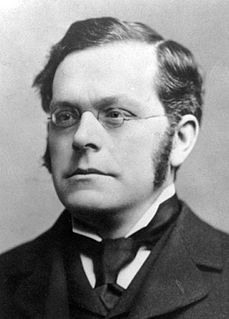A Quote by Samuel Johnson
He who would govern his actions by the laws of virtue must regulate his thoughts by those of reason.
Related Quotes
It is equally clear that a government must govern, must prescribe and enforce laws within its sphere or cease to be a government. Moreover, the individual must be independent and free within his own sphere or cease to be an individual. The fundamental question was then, is now, and always will be through what adjustments, by what actions, these principles may be applied.
I must follow my Lord. No matter what. I must renew my allegiance every morning. It is His voice I must listen to, not the voices of those around me, however strident, however persuasive. It is His Word that must govern my life, not the words of others. God Himself has written a Book (think of it!) that must be the authority in my life.
There must be only three supreme values which govern a person's life: Reason, Purpose, and Self-esteem. Reason, as his only tool of knowledge--Purpose, as his choice of the happiness which that tool must proceed to achieve--Self-esteem, as his inviolate certainty that his mind is competent to think and his person is worthy of happiness, which means: is worthy of living. These three values imply and require all of man's virtues, and all his virtues pertain to the relation of existence and consciousness: rationality, independence, integrity, honesty, justice, productiveness, pride.
We are here on this earth to know God intimately, fully, correctly, and contagiously; to house His holy person in our very bodies, allowing Him to showcase to the world around us His loving nature, His attitude, His thoughts, His emotions, and His actions through the way we live every moment of our lives.
As you sometimes swear by him that made you, I conclude your sentiments do not correspond with his, in that which is the basis of the doctrine you both agree in: and this makes it impossible to imagine whence this congruity between you arises. "To grant that there is a supreme intelligence who rules the world and has established laws to regulate the actions of his creatures; and still to assert that man, in a state of nature, may be considered as perfectly free from all restraints of law and government, appears to a common understanding altogether irreconcilable.




































